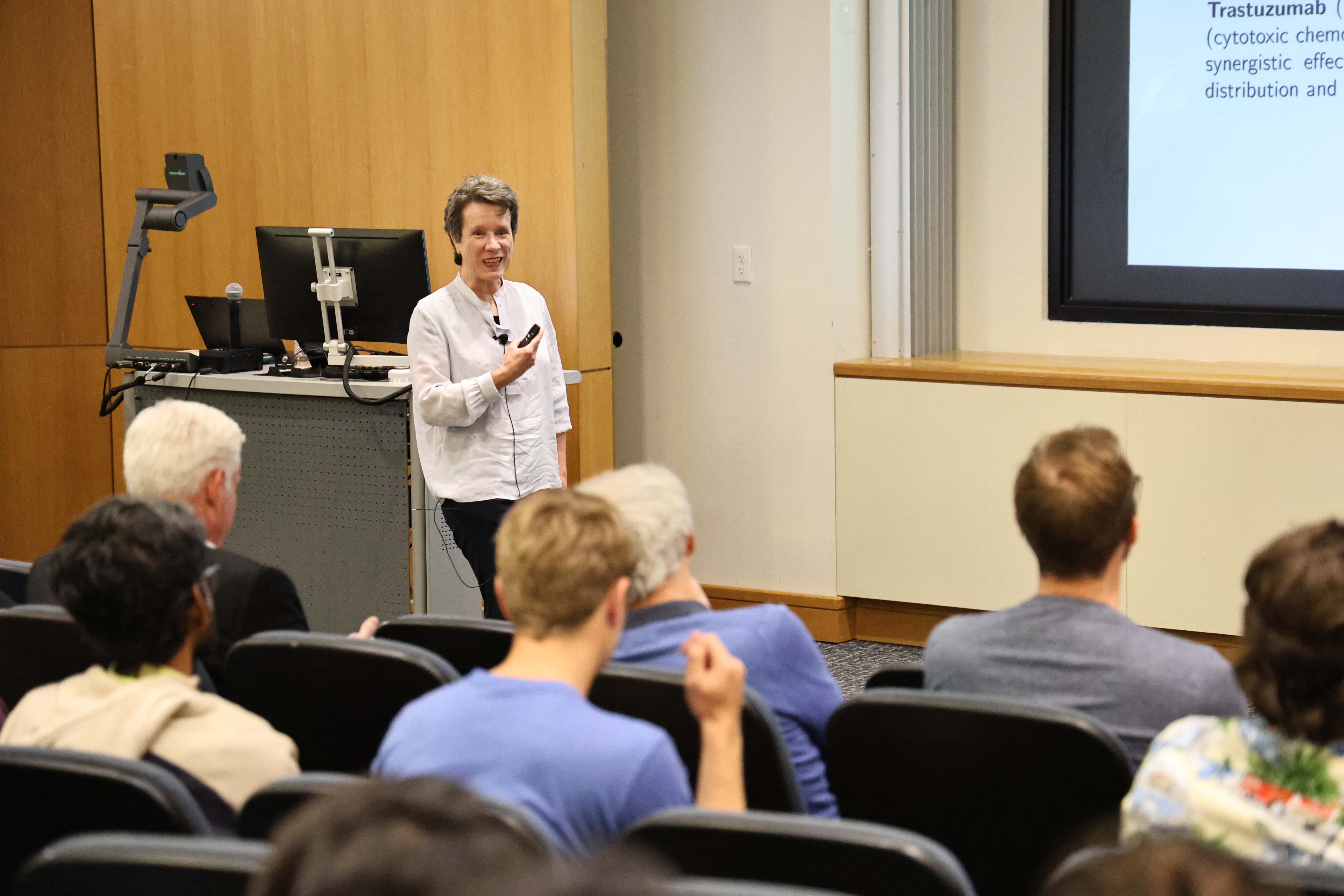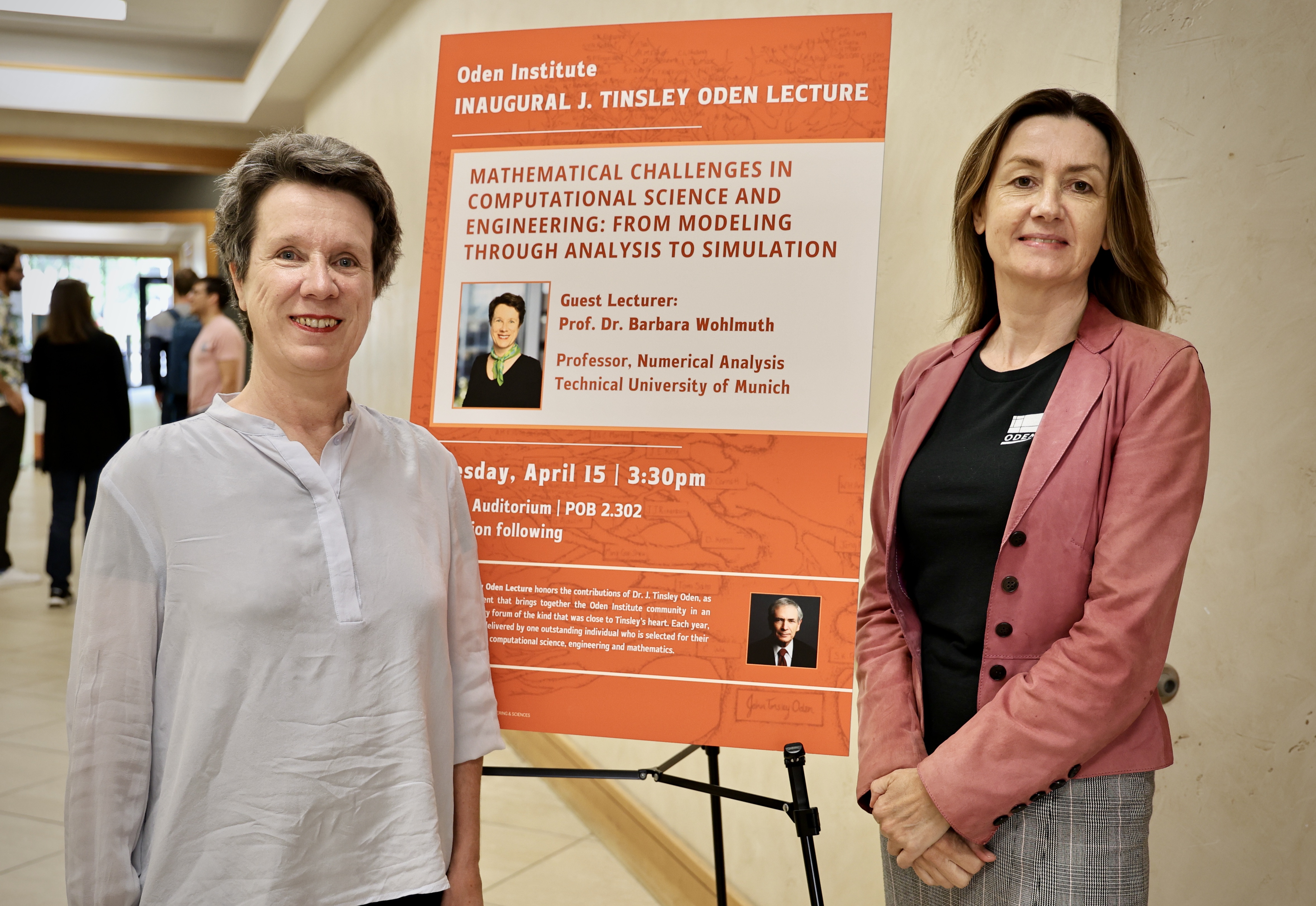On April 15, 2025, Barbara Wohlmuth, Chair of Numerical Mathematics at the Technical University of Munich (TUM), delivered the inaugural J. Tinsley Oden Distinguished Lecture at the Oden Institute for Computational Engineering and Sciences. Titled “Mathematical Challenges in Computational Science and Engineering: From Modeling through Analysis to Simulation,” the talk was a tour-de-force in numerical analysis - a field advanced in no small part by Wohlmuth and her longtime friend and collaborator, Dr. Oden.
Wohlmuth’s lecture focused on numerical analysis’ applications across fields, interspersed by memories of her work with Dr. Oden and faculty members across the Institute. Her talk covered fractional time derivatives, which hold applications in thermoplastic polymer research. “These problems are hugely problematic mathematically,” Wohlmuth shared. “None of the standard rules, like chain and product rule, hold true for these operators.” When these rules break down, advancements in numerical analysis - including kernel compression techniques, supported by the AAA algorithm, enable us to create models for these challenging systems.
Wohlmuth also highlighted the implications of these techniques on time fractional PDEs. She likened fractional time models to a group of mismatched hikers: one team starts off with a burst of energy, racing ahead only to tire out near the summit, while the other begins slowly and steadily, gradually gaining momentum to finish strong. This dynamic, she explained, mirrors how memory effects in fractional time derivatives influence the pace and behavior of evolving systems.
The principles of this work can also be applied to equations that vary over space – which is critical to our understanding of renewable energy and harnessing the power of wind – especially when we consider fringe, extreme events when optimizing turbines or modelling extreme weather events.

